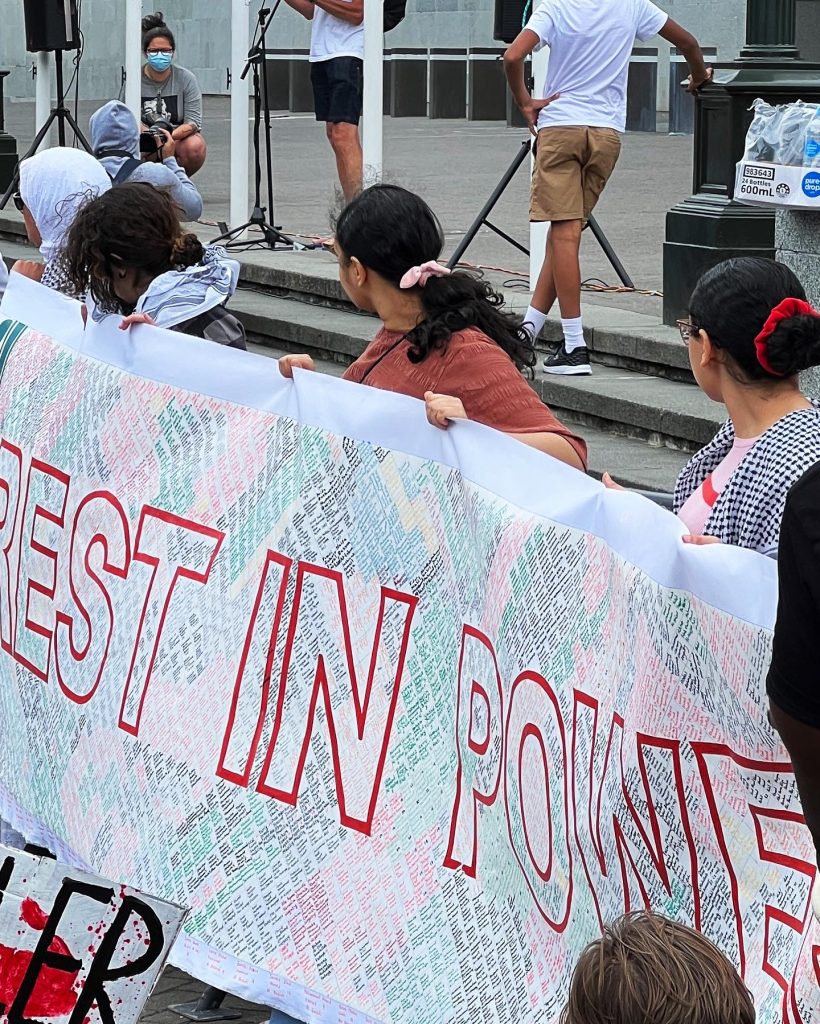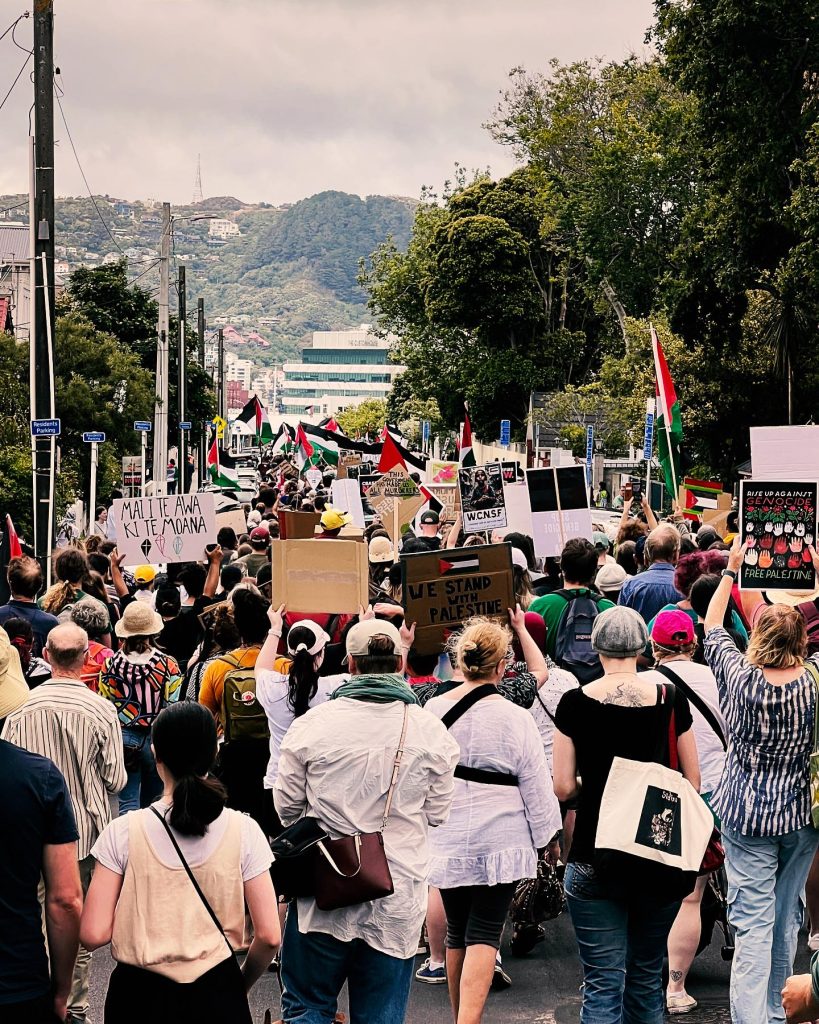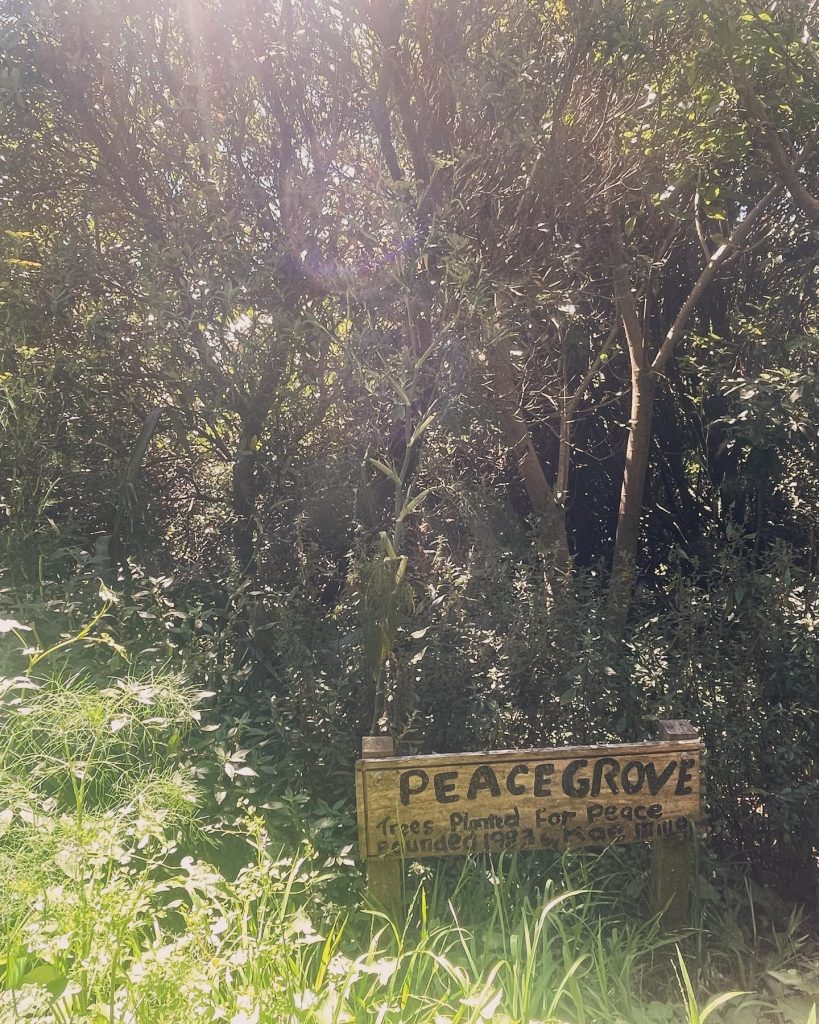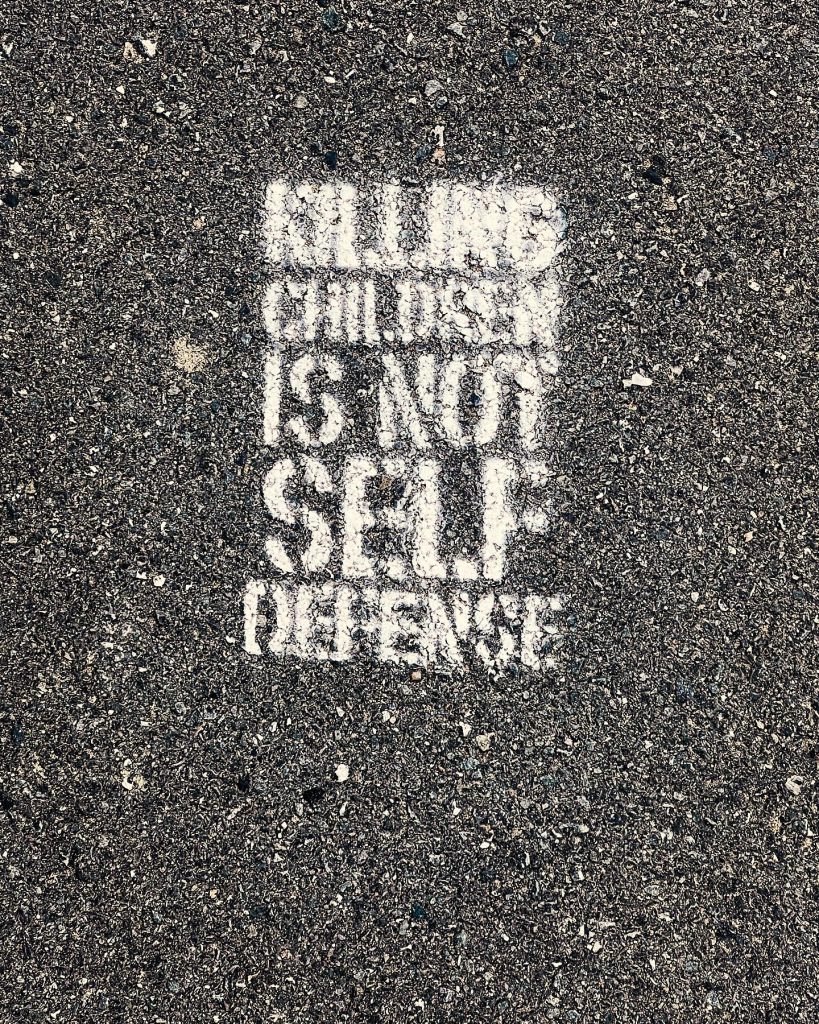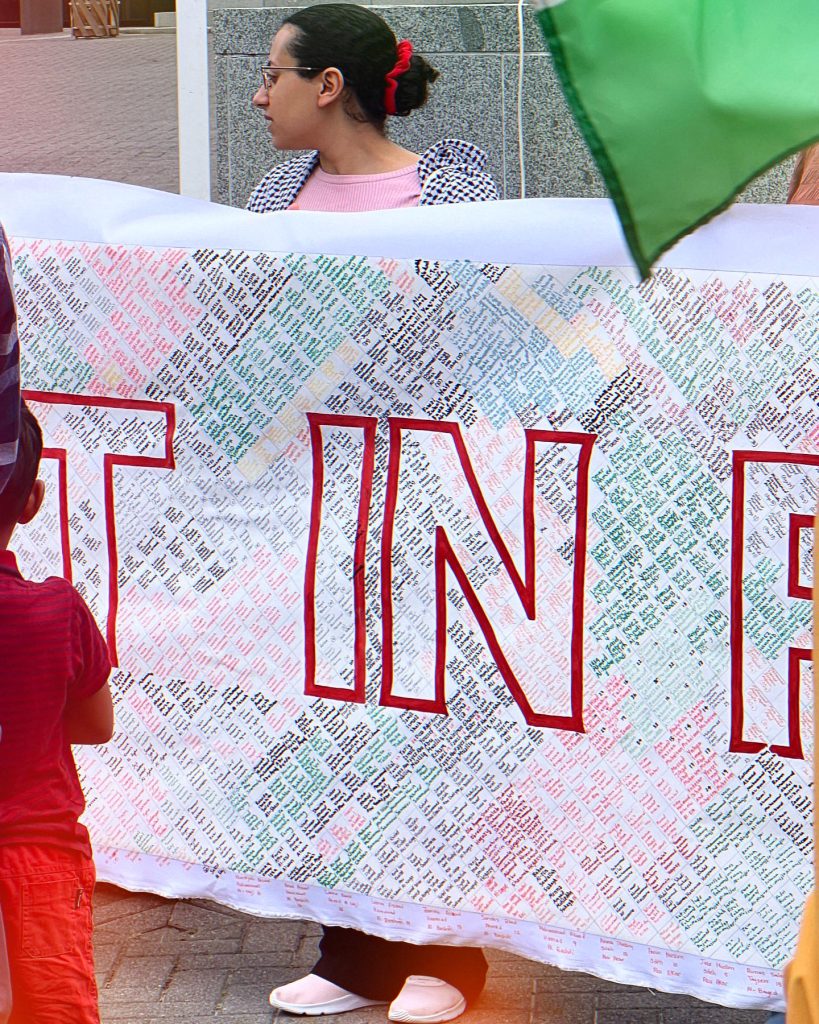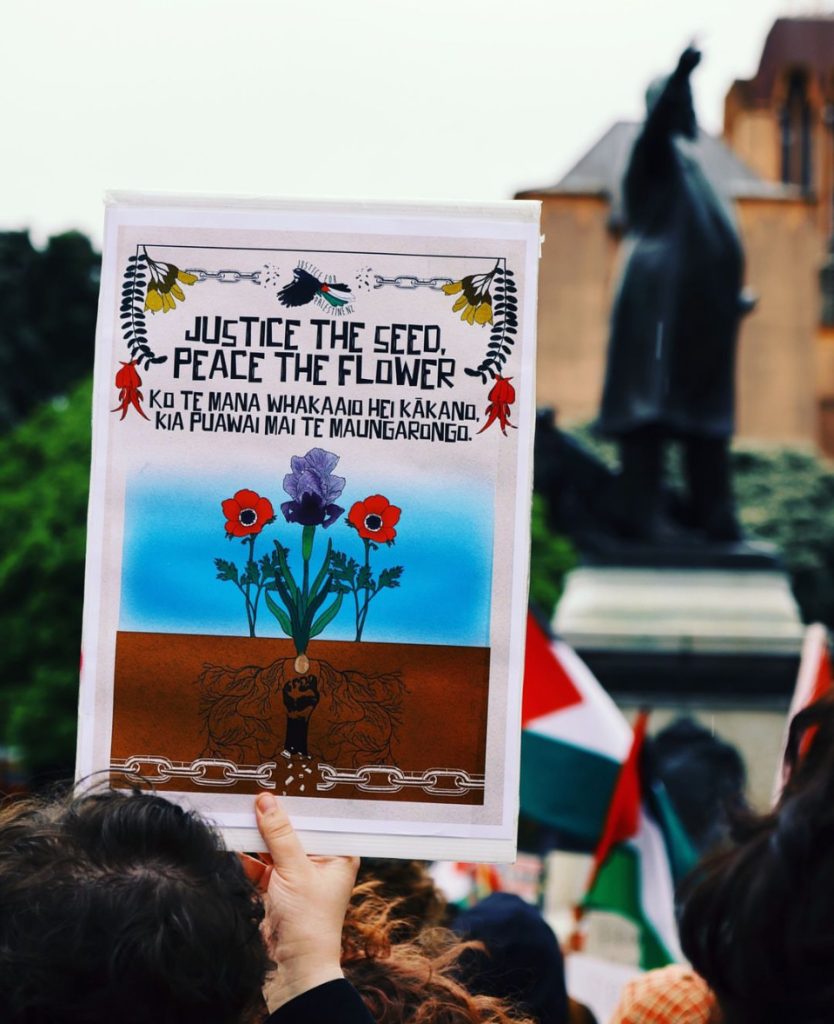
“The first genocide in history where its victims are broadcasting their own destruction in real time in the desperate, so far vain hope that the world might do something.”—Blinne Ni Ghralaigh to the International Court of Justice (ICJ) at The Hague.
The complete arguments presented by the South Africa team are here: https://webtv.un.org/en/asset/k11/k11gf661b3
After so much recorded and irrefutable evidence of war crimes, the media continues to portray the protestors as the real threat—how much suffering is perpetuated by this misrepresentation? These protests are to stop killing, and for the life and freedom of a starving population in Palestine in living hell with nowhere safe to exist. Certainly, for the life of the hostages as well, who continue to be recklessly endangered by warmongering. And the protests stand against the cruelty, hate, racism and dehumanisation that enable the US/UK to condone—rather than oppose—Israel’s military action against the Palestinian people.
It’s clear to anyone who turns up that the protests are rooted in love. There are signs and banners of solidarity from the Jewish diaspora, from Yemen, Lebanon, Congo, Sudan. Many communities & generations, religions, cultures coming together across differences in support of the freedom of the Palestinian people, and against the unconscionable horrors detailed by the South African legal team last Thursday.
“It is in your hands to make of our world a better one for all”.
Mandela’s speech source: https://www.nelsonmandela.org/news/entry/nelson-mandela-speaks-out-about-zimbabwe
Respect to South Africa for leading the call for justice and taking the legacy of Mandela seriously, and delivering a case with such clarity and presence that they managed to intervene and gain the attention of the world, despite the relentless propaganda and silencing of the reality in Gaza.
Respect to the protestors who bring their refusal to the streets every single week. People are more than their governments and statesmen. Beyond politics, human beings hold a real living collective responsibility to stand together for each other, and – as Mandela spoke it – give our hands.
There is a striking interview with Palestinian poet Najwan Darwish. He speaks about the poet as holder of the past and the future, and his deep appreciation for the solidarity of Maori communities.
I wish I could stop writing, sometimes. It’s an unusual life. I wake up from bed with strange things in my head and live in the past too much and feel the future too much. When you brought up the issue of a poet being a kind of historian, it’s true: I’m worried about history. I continue to revisit it. I wrote a poem about Armenian history; nowadays, I see that we Palestinians are living out something like that once again. So here, you see the ironies of history; history mocks us. It shows us that the things we thought people suffered in the past – they’re still in front of you. It says, you think you are writing about the past; you’re really writing about your future. In a way, though, history helps you see that everything and everyone is connected. What happened to the Palestinians, also happened to the Maori people. One of the most precious things I have received recently were messages from Maori people, the original people of the so-called New Zealand, who translated a selection of my work into Maori, and published it in honor of a day of solidarity with Palestinians. We humans still don’t seem to understand that we’re all connected. Everyone is a “foreigner” at some time or another. At any moment, any of us can again become a foreigner and a refugee.
Interview: Palestinian poet Najwan Darwish: ‘We can’t begin to comprehend the loss of art’ Alexia Underwood
